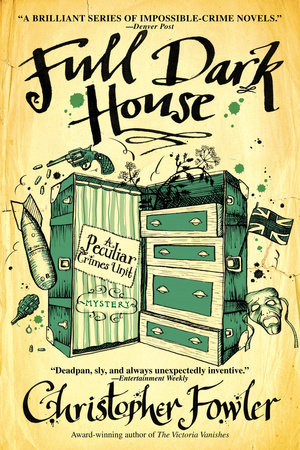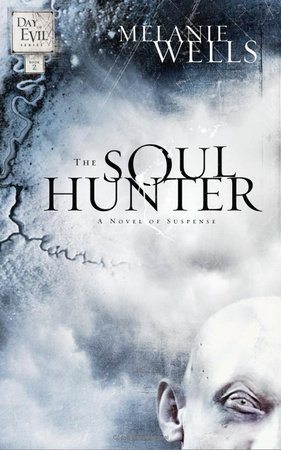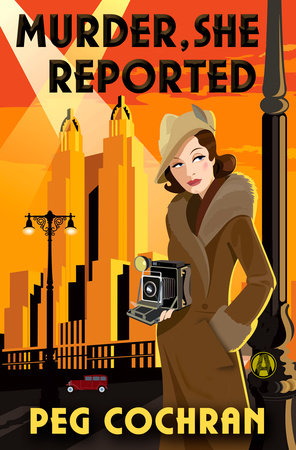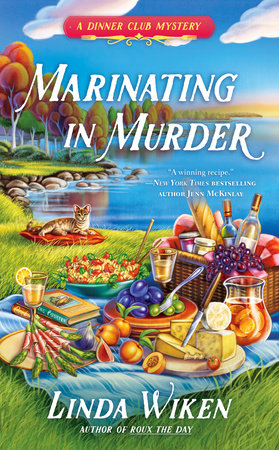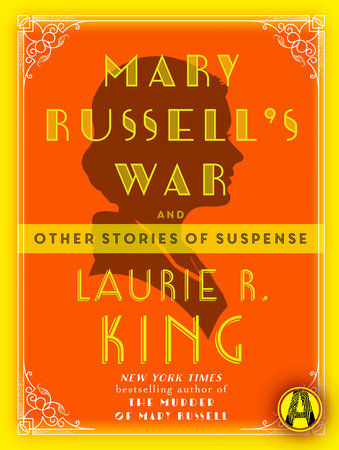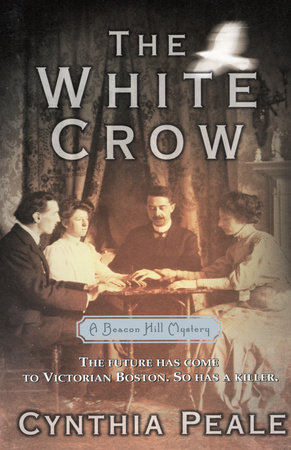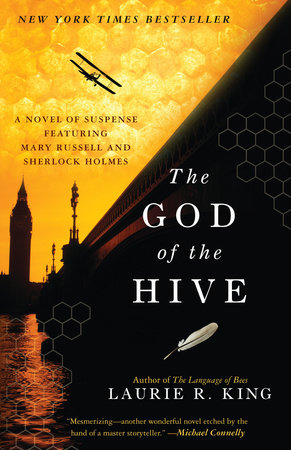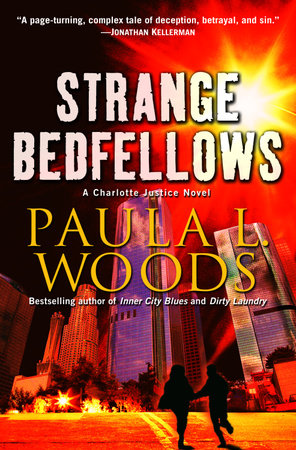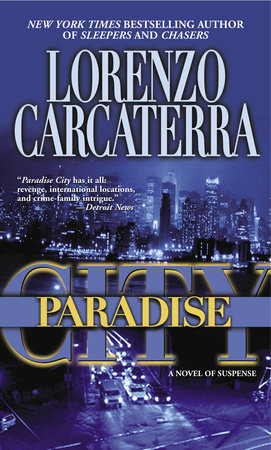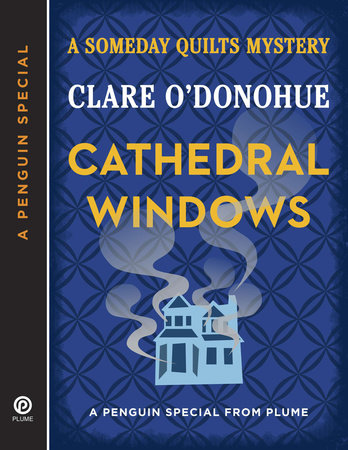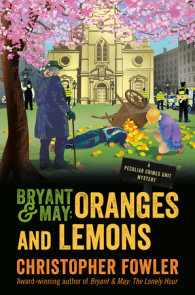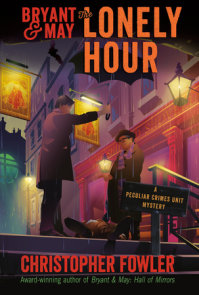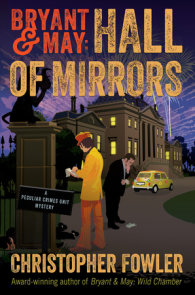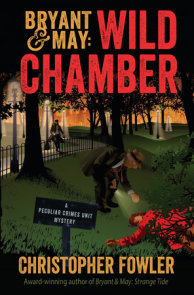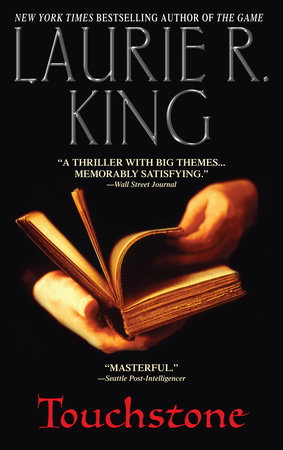Author Q&A
Full Dark House is the first in a series of novels featuring Arthur Bryant and John May, partners in the London Police Department’s Peculiar Crimes Unit. This is perhaps one of the most unusual series to be introduced this year, considering that Bryant is killed at the beginning of Full Dark House and we only come to know him in retrospect. Why do you begin the series in this fashion?
I wanted to start in a completely unexpected manner. I’m very interested in upending the traditional approach to mystery fiction, even though the story is careful to use traditional devices, like the planting of clues, mistaken identities and an exciting denouement. Also, it’s appealing to tell the reader that something is impossible before setting out to show why it’s not! For Bryant & May’s first book, I thought I should create both a beginning and an end. It seemed the logical place to start…
A great deal of Full Dark House takes place in London in 1940, during the blitzkrieg bombing. Your penchant for historical detail is one of the most enjoyable aspects of Full Dark House. Is the history of early and mid-20th Century London of particular interest to you? What drew you to set so much of Full Dark House in that era?
London is a city with over 2000 years of history, but I find it’s not served well in mystery fiction—stories rarely used the landscape to its best effect. I wanted to take Bryant & May back to their first meeting and their first case, which conveniently placed me at a very crucial time for London. Also, it’s the last era one can still research by just talking to people about their experiences. The week in which the book is set is very well covered from a historical point of view—the daily events are taken from each day’s newspaper headlines, then personal reminiscences were added for authenticity.
On a related note you also demonstrate a great deal of familiarity with the live theater in London before and during the years of World War II. Some of your details, such as the manner in which the affordability of the cinema adversely affected live theater and actors, were fascinating. Do you have any background or interest in the live theater?
To grow up in London is to be surrounded by theaters; they were cheap and easy to get into, so kids like me had no special attitude about going to see a play—it was something you did like going to the movies or a football game, no big deal. We never thought of it as high art, but we wondered how it worked, and I became interested in the mechanics.
What made you decide to have your main characters work for the London Police Department’s Peculiar Crimes Unit? For readers who may not be familiar with the book, can you please share what the Peculiar Crimes Unit does?
There are two ways to write about the police—you can take a very gritty, realistic point of view, using only factual details, or you invent your own special way of tackling crime, which to me was far more appealing. During the war, many experimental units were set up (for example, the world’s first therapy unit was created to help bereaved and bombed-out residents). The Peculiar Crimes Unit handles the cases that the regular police are not equipped to deal with; cases that could cause social panic, ones that require sensitive handling, ones that the regular police simply don’t understand, and those that fall into the grey area of possibly not being crimes at all. Such divisions existed, but their existence was denied.
Have any of your previous works featured recurring characters? If not, why did you decide to begin this series? If so, why did you decide to create this new series? What are the challenges involved with developing a new series?
I have actually used Bryant & May several times before (most notably in the novels Rune and Soho Black) and felt I could do much more with them, especially because their working methods are so unorthodox and unusual. This series has given me the chance to place them center stage and have some fun. I think mysteries should be so much fun to read that reaching the solution should be almost an added attraction. The hardest part is bringing continuity to the books, yet making sure that each one stands alone.
Will you concentrate exclusively on writing Bryant & May mysteries for the foreseeable future, or do you intend to alternate them with stand-alone novels?
No, I produce an anthology of short stories every other year, and have also written a very different crime novel called Plastic—with a small cameo from Arthur Bryant!
What drew you to writing in the suspense/historical suspense genres?
Actually, it seems as if I have been writing in the genre for years, as several other of my books would qualify as suspense thrillers or perhaps very dark comedies. The historical element is appealing, but I generally prefer to work in the present — the past is hard to catch accurately.
What British and American mystery writers have influenced you the most?
My tastes are extremely eclectic, from Dickens, MR James, Robert Harris and JG Ballard in the UK to John Collier, Harlan Ellison, Tennessee Williams, Tobias Wolfe and William Faulkner in the US, but there are hundreds of other authors I admire.
You have written a number of novels as well as a great number of short stories. Out of all of your work, which is your favorite novel and short story?
Tough one, as there are over a hundred published short stories to begin with. I’m very proud of two stories called Tales From Britannica Castle which I wrote as an homage to Mervyn Peake, and my favourite novels are a coin-toss between the very dark mystery thriller Psychoville, and a lighter, less successful book I wrote called Calabash—I got the most fan mail from these two, and they represent parts of my childhood memories. Calabash still makes me laugh.
Although you have an extensive bibliography, we were very interested to learn that writing novels is not your only work. We understand that you also are creative director for a film and design company called Creative Partnership, which creates campaigns for films in the UK. What is involved in creating such a campaign? And can you give us some examples of some films for which you’ve created campaigns? How do you balance your creative directing work with your writing?
Everyone asks how I find the time to run a large company and write. The easy answer is that I don’t watch TV (actually I watched the whole of Six Feet Under and Dead Like Me so that’s not strictly true). Creative Partnership has created national and sometimes global campaigns for films like Thunderbirds, Love, Actually, Moulin Rouge, Tomorrow Never Dies, Pulp Fiction and Trainspotting. We write and produce all kinds of elements from the one hour TV specials, title sequences, TV and radio campaigns, and of course movie posters. It teaches you to write quickly and succinctly, marrying craft with art.
How does your film work influence your writing?
I love film and tend to think visually. If I can’t picture a scene in my head, how can I expect my reader to? I make strong use of locations in my novels, almost as if they were extra characters, and I try to under-write scenes, leaving room for the imagination. I also have music in mind when I write, to give me a tone to work with.
What is your daily writing/research schedule like?
It’s rather erratic, owing to my work commitments, but I tend to write best when I haven’t done too much for a day or so—I feel there are more ideas knocking around inside my head.
What are you working on now and when can readers expect to see it?
You’ll have The Water Room when the paperback for Full Dark House arrives, and Seventy Seven Clocks not long after that. I’m hoping that there will be at least six books in the series, and maybe many more. It depends how popular I prove to be in America!
